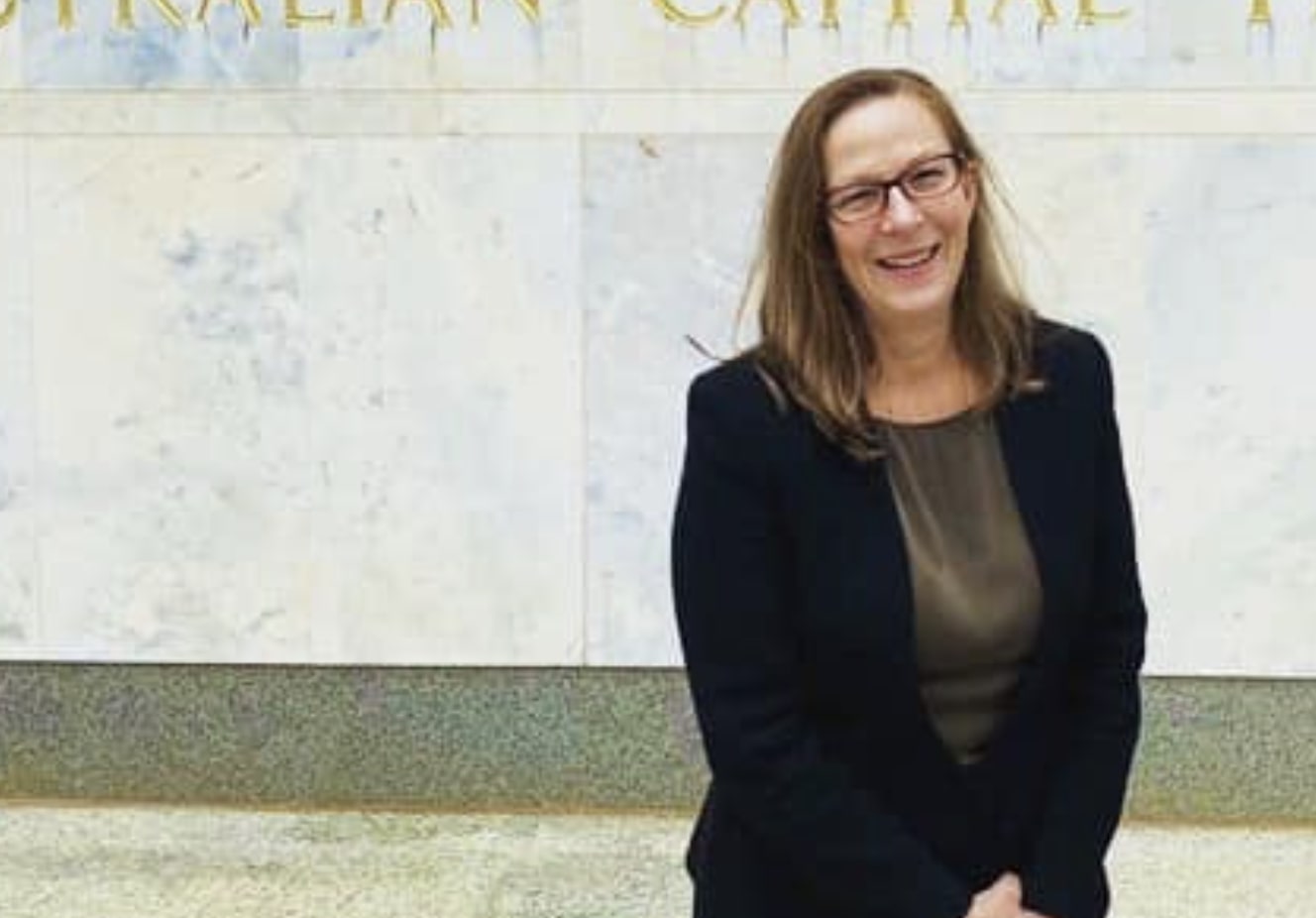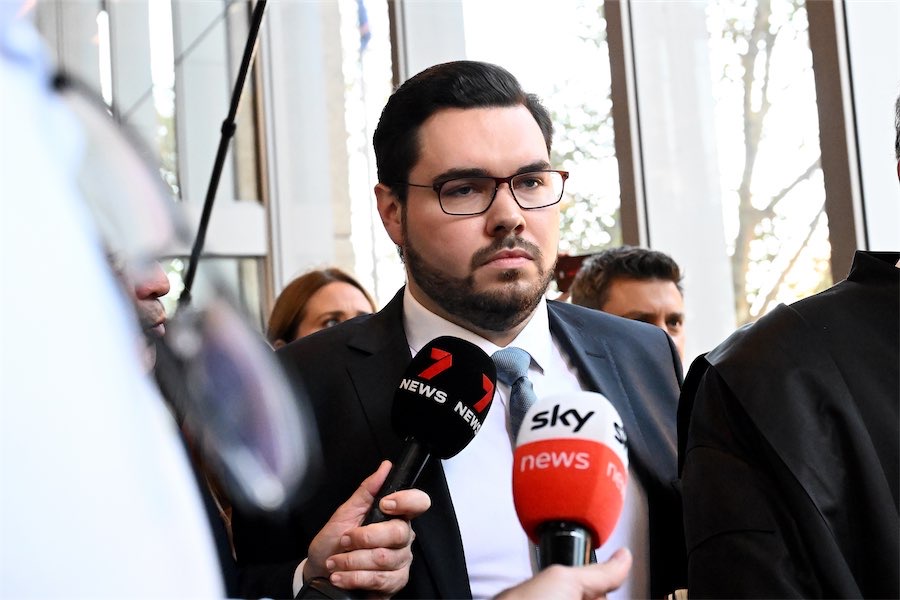
“The Australian” has run an open attack upon ACT Chief Justice Lucy McCallum, selectively, but misleadingly, quoting from recent speeches in which she reveals a view about some wrongs meted out to indigenous Australians since British colonisation. She’s owed a public apology, says legal affairs columnist HUGH SELBY.
WHO likes to be the target of criticism? No one known to me; however, criticism that is soundly based in fact and presents a reasonable argument can change what we believe, what we say, how we behave.

The broadsheet national newspaper, “The Australian”, purports to represent the highest standards of journalism: that is, we can assume that the facts are checked and support any opinions. From such journalism we can all benefit.
This week it ran a lengthy article titled, “Bench wrong pulpit to recite welcome to country”, written by columnist Janet Albrechtsen.
This article is an open attack upon the ACT Chief Justice, Lucy McCallum. It selectively, but misleadingly, quotes from her 2022/23 speeches in which she reveals a view about some wrongs meted out to indigenous Australians since British colonisation of this continent.
Readers may like to check her speeches. They can be found (except for a speech in June 2023) here on the ACT Supreme Court website.
The speeches were addresses made to lawyers – newly minted and old hands – at ceremonial occasions and at a legal history meeting.
The article asserts that: “McCallum has begun addresses in her courtroom by saying, ‘I acknowledge the First Nations people… I acknowledge that the land has never been ceded by them’.” It also notes that she has said, “many wrongs have been done to First Nations people in the name of the rule of law”.
Expression is important and here the use of “in her courtroom” is key. The assertion carries the suggestion – quite wrongly – that the chief justice is making these statements when she is presiding over matters (be they civil or criminal).
During 2022, before I retired, I was “in her courtroom” on several occasions, either as an observer or an advocate. Never did she utter such sentiments. Moreover, the imputation that she would do so is disgraceful.
What the chief justice did say was important, but not for the reasons advanced by Ms Albrechtsen.
For example, at her March 2022 “Swearing in as Chief Justice” she began as follows: “I acknowledge that the land on which we are gathered today is the land of its First Nations people who have lived here for over 60,000 years and by whom it has never been surrendered; not in 1788 and not since… I pay my deepest respects to you…, your elders, other elders past and present.”
By 2022 such sentiments were the norm, albeit that it took us more than two centuries to get there: they are straightforward, factual statements.
Ms Albrechtsen mischievously asks whether the Chief Justice, when identifying the gross over-representation of indigenous people in custody, is suggesting that, “we shouldn’t incarcerate some indigenous people who are found guilty of serious crimes?” It’s mischievous because the chief justice said at her swearing in: “I am not talking about introducing a culture of leniency in sentencing or exposing the community to unwarranted risk (when deciding bail applications)”.
It is also mischievous to ask rhetorical questions as to what the chief justice meant by her remarks with the suggestion that she meant an attack on our legal system.
What she meant was no more and no less than what she said. Within the context of each full speech there is nothing controversial: unless to be compassionate, open to new information and clear about her perceptions are errors of judgement. I think not.
Ms Albrechtsen’s extrapolation of those remarks into suggested departures by the chief justice from the law as set out by our High Court is risible: read the speeches and see how readers of her article are misled.
In January, speaking at the commencement of the legal year the chief justice said: “The judicial branch of government depends for its institutional integrity on the respect of the people it serves. Respect for the court as an institution in turn derives from the public’s acceptance of the correctness and integrity of its decisions”.
She might have added that the public’s acceptance depends upon accurate reporting not only of decisions from one case to the next, but also of speeches given by judges to legal practitioners.
The “rule of law” – a phrase in vogue among certain media – does not describe some fixed point. The “rule of law” evolves, thankfully, so that we no longer hang, draw and quarter convicted felons, or imprison debtors without funds, or search for fault when once loving relationships fail.
The last word about the “rule of law” belongs to the chief justice. Ending her November 2022 speech to legal history devotees she said: “The simple fact is that statutory law reflects the voices heard by the lawmakers. The men who passed the bill that authorised… the stealing of an Aboriginal child from its parents heard the voices of police and settlers.
“Whether with ill-will or misguided goodwill, the NSW parliament that day suffered the rule of law to become an instrument of oppression under the guise of protection. Today, we must recognise the need for parliaments to hear a different voice”.
“The Australian” might publicly apologise to the chief justice: that would be appropriate.
Hugh Selby is the “CityNews” legal affairs commentator. His free podcasts on “Witness Essentials” and “Advocacy in court: preparation and performance” can be heard on the best known podcast sites.
Who can be trusted?
In a world of spin and confusion, there’s never been a more important time to support independent journalism in Canberra.
If you trust our work online and want to enforce the power of independent voices, I invite you to make a small contribution.
Every dollar of support is invested back into our journalism to help keep citynews.com.au strong and free.
Thank you,
Ian Meikle, editor





Leave a Reply